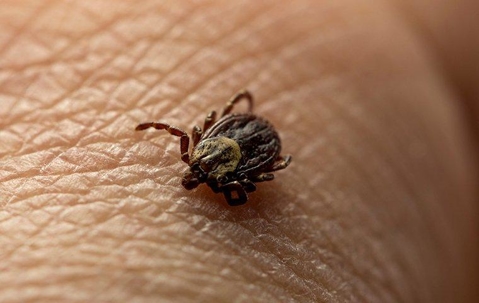Nestled in the heart of Washington lies Kittitas County. This county is an outdoor enthusiast's paradise. Residents of this gorgeously landscaped region enjoy the benefits of having the majestic Cascade Mountains, the mighty Columbia River, and the sparkling Yakima River nearby.
Whether your outdoor activities take you to the water, the mountains, the forest, or your own backyard, the fresh, clean air will undoubtedly refresh your spirit. The local tick is one blood-sucking pest in the area that might sap the enjoyment of outdoor fun. Without pest control in Kittitas County, residents planning to enjoy their backyard might get a rude awakening.
How Common Ticks Get Around
Three ticks frequently found roaming the Kittitas County area are the black-legged tick, the American dog tick, and the Rocky Mountain wood tick. Each tick is tiny, measuring anywhere from 1/8 to 3/16 inches; they don't have wings, and their eight little legs won't get them far. With limitations such as these, one might wonder how they become so well-traveled. The answer is that ticks wait for transporters.
Many ticks in Kittitas County hitch a ride on unsuspecting wild animals like deer, mice, squirrels, chipmunks, and even birds; they also like pets who enjoy a fun romp in the woods. Another favorite transporter (host) is people.
Ticks prefer shady areas; they love the woods and places with dense vegetation, such as high grasses, brush, shrubs, and locations with a lot of leaf litter. They'll hang out in these areas until a transporter comes by and brushes up against their hiding place. As their transporter passes by, ticks will use their back legs as an anchor point and stretch out their front legs to grasp their victim. Ticks can even get you from above. Some of their perches are pretty high, so they will let go of whatever they're holding onto and free-fall onto you.
Once they settle on their victim, they plunge their sucking mouthparts into their skin and begin feasting on their blood. Feeding on a victim's blood can lead to the transference of some dangerous diseases.
The Dangerous Diseases Tick Bites Are Known To Spread
Ticks might be small in stature, but diseases acquired from encounters with ticks can cause severe problems for pets and people. With three different types of ticks in Kittitas County, one must stay aware of the diseases each is known to carry.
Diseases spread by common Kittitas County ticks are as follows:
- Black-legged ticks spread the Powassan virus, anaplasmosis, Lyme disease, ehrlichiosis, babesiosis, and B. miyamotoi disease (relapsing fever).
- American dog ticks spread tick paralysis, tularemia, and Rocky Mountain spotted fever.
- Rocky Mountain wood ticks spread Colorado tick fever, tick paralysis, and Rocky Mountain spotted fever.
Becoming a host for a tick can have some severe consequences. People can get extremely ill from the diseases ticks carry; pets are also susceptible to becoming quite sick from tick bites. Knowing what illnesses ticks can transfer by ticks should prompt residents to take proactive steps toward reducing tick encounters on their property. At Prosite Pest Company, we offer comprehensive tick control solutions that can help eliminate ticks from your yard.
Useful Tips To Protect Yourself From Ticks While Out And About
Spending time outdoors leaves people susceptible to tick encounters. Whether working outside, enjoying time in your backyard, or experiencing activities around the Kittitas County countryside, it's essential to take precautions when engaging in outdoor activities.
Some precautions people can take when enjoying the outdoors include:
- Keep your lawns mowed.
- Cover up by wearing socks, shoes, pants (light-colored), and long-sleeved shirts.
- Stay away from areas where ticks like to hang out.
- Use outdoor tick spray.
- Purchase and use clothing pretreated with tick repellent.
- Don't stray off trails when in the woods; try to keep to the center of them.
- Always perform a thorough body check (especially in warm, moist areas).
- Remove ticks quickly. (For a tick to transfer diseases, it typically requires 24 to 48 hours of feeding.)
Ticks can suck the joy out of outdoor activities. Even vigilant property owners who take precautions against tick encounters can experience unpleasant visits. When you can't even enjoy your backyard, it's time to call in the home pest control professionals at Prosite. Our proactive and preventative pest and tick control plans can help protect your family from potentially dangerous pests.
The Best Way To Keep Ticks Away From Your Yard
Prosite provides the best yard treatment for ticks near you. Our company offers customers year-round coverage plans and all-inclusive pest control solutions that protect property owners from nuisance and potentially dangerous pests.
With three levels of pest protection, customers are sure to find a plan that will fit their budget. Let Prosite help keep your yard tick free; request a consultation today.

